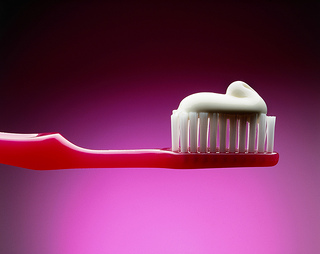What’s the Function of Functional Appliances?
January 24th, 2024

Whenever we bite down, we’re applying force with our jaw muscles. Functional appliances direct these forces to create healthier tooth and jaw alignment. They’re used to help correct bite problems and to encourage symmetrical jaw growth.
Functional appliances aren’t always necessary. Because every child’s teeth and bite are different, orthodontic treatment at our Hortonville or Appleville office is carefully tailored to your child’s individual needs.
- For the child with minor tooth misalignment, traditional braces or aligners might be all that’s needed.
- For the child with a minor malocclusion, or bite problem, an orthodontist might use elastics (rubber bands) to bring teeth into healthy alignment.
- For the child who has a more serious malocclusion, involving both tooth and jaw alignment, an orthodontist might recommend a functional appliance.
A severe Class II malocclusion can be caused when the upper jaw or teeth are positioned too far forward, and/or the lower jaw is too small or positioned too far back. Common Class II malocclusions include:
- Open bite—the front teeth don’t touch when the back teeth bite down, or the back teeth don’t touch when the front teeth close.
- Overbite—some overbite is normal. A deep overbite occurs when the upper teeth significantly overlap the lower teeth.
- Overjet—the upper front teeth protrude further horizontally than they should.
Today’s functional appliances come in a variety of designs to treat Class II malocclusions. They can be fixed or removable. They can be used with or without braces. Some are designed to expand the upper palate to make sure there’s room for all the permanent teeth. What they all do is advance the position of the lower teeth and jaw to create a healthier, more comfortable bite.
Fixed devices are attached to the teeth and meant to be used full-time. These include the Forsus™ device, the Herbst® appliance, and the MARA appliance.
- Forsus Device
This appliance works with braces. A spring coil rod is most often attached to bands on the first molars on the upper jaw. It’s then connected to the arch wire on the lower jaw. Just like elastics—but more effective!—these spring coil rods provide gentle forward pressure that encourages the lower jaw and teeth forward.
- Herbst Appliance
The Herbst appliance also applies forward pressure to the lower jaw using telescoping rods connecting the upper and lower teeth. The rods expand as the mouth opens, and telescope together as it closes, positioning the lower jaw further forward while the upper jaw is held back. The Herbst can be worn alone or with braces, and can also be used to expand the upper palate.
- MARA Appliance
The MARA (Mandibular Anterior Repositioning Appliance) uses an adjustable “elbow” piece connecting bands on upper and lower molars to guide the lower jaw and teeth forward when the jaw closes.
Removable appliances such as Bionator and Twin Block appliances can also improve Class II malocclusions. They are meant to be worn for a specific number of hours each day, and can be taken out for sports or other activities as needed. Because it’s essential to get all the necessary hours in, removable appliances require commitment!
- Bionators
A bionator is made of wire and acrylic, and it looks a lot like a retainer. The wire fits around the upper front teeth. It’s attached to a smooth piece of acrylic that sits behind the upper teeth and is shaped to guide the lower jaw forward when biting down. The bionator can also be adjusted to expand the upper palate.
- Twin Block Appliance
The twin block appliance uses two separate pieces made of wire and smooth acrylic. Both pieces are modeled to fit precisely over the upper and lower arches. The acrylic “blocks” fit over the biting surfaces of the teeth, working together like a 3D puzzle. When your child bites down, the upper blocks slide into place behind the lower blocks, pushing the lower jaw and teeth forward. The top plate can also be adjusted to expand the upper palate if needed.
Because these appliances are best used while a child’s bones are still growing and developing, dentists and orthodontists recommend an orthodontic evaluation by age seven. Early treatment with a functional appliance can help correct serious bite problems before or together with braces. In some cases, functional appliances may reduce the need for headgear or surgery.
Todays’ orthodontic technology has made functional appliances more comfortable and efficient than ever before. Talk to Dr. Schmidtke to discover how an individualized treatment plan and a custom appliance can give your child a healthy bite and a lasting smile.



